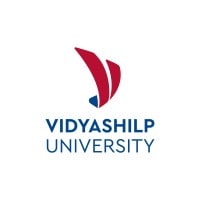Apeejay Institute of Design, Delhi B.Design Admissions 2025
100% Placement Assistance. Ranked among top 5 Design Institutions in the Country
BSc in Fashion Designing is a three-year undergraduate degree programme segregated into six semesters that deals with different aspects of fashion and design such as leather design, jewellery design, footwear design, interior design, garment design, and more related areas. Around 298 colleges offer a Diploma in Web Design, out of which only 22 are government while the remaining 276 colleges are private.
Various schools in India offer fashion designing courses with degrees like B.Sc or B.Tech, B.A. The admission for BSc in fashion design courses is based on entrance tests and 10+2 scores. The top BSc in Fashion Design colleges are VIT Chennai, ILEAD Kolkata, KMV Jalandhar, and Jamal Mohamed College, Tiruchirappalli. The average fee required to enrol in the course is Rs. 56,820 to Rs. 8.16 Lakhs.
Candidates aspiring to become fashion designers must consider B.Sc in fashion design as their bachelor’s degree programme. After completing the degree programme candidates have various career options like Fashion Designer, Merchandiser, and Fashion influencer thereby earning an average salary of Rs. 3 Lakhs per annum. Some top companies like Swarovski India, Allen Solly, Global Desi, and Levi’s hire BSc in Fashion Design graduates.
| Particulars | Values |
|---|---|
Course Name | BSc in Fashion Designing |
BSc Fashion Design Course Type | Undergraduate |
BSc Fashion Design Course Duration | 3 Years |
BSc Fashion Design Entrance Exam | NIFT, NID DAT, UCEED |
BSc Fashion Design Eligibility Criteria | 10+2 from a recognised board |
BSc Fashion Design Admission Process | Entrance Exam + Merit |
BSc Fashion Design Fees | Rs. 56,000 - Rs. 8.16 Lakhs |
Average BSc Fashion Design Salary | Rs. 3.90 LPA |
BSc Fashion Design Recruiters | Benetton, Swarovski India, Allen Solly, Global Desi, Marks & Spencer, Reid & Taylor, Levi’s, Octave, Van Heusen, Snapdeal |
BSc Fashion Design Career Options | Fashion designer, Fashion consultant, Merchandiser, Fashion influencer |
BSc fashion designing qualifications are different for every university. It is defined as the minimum parameters set by the admission committee for students to offer them admission to their desired course.
BSc fashion designing eligibility criteria are decided based on the type of admission process the university chooses to follow. The eligibility criteria for a BSc in fashion design are mentioned below:
Candidates who meet the eligibility requirements advance to the admission round. BSc Fashion Design admission is often provided at the university/institute level or through a national entrance examination.
Aspiring applicants who pass the BSc fashion designing entrance examination will be invited for a personal interview, studio test, and portfolio review. The general admission process for admission to the B.Sc in fashion design course is mentioned below:
A trans-disciplinary design program considering People, Technology, Science & Business
Last Date of Applications- 17th April | India's youngest NAAC A++ accredited University | NIRF rank band 151-200 | 2200 Recruiters | 45.98 Lakhs Highest Package
For admission to the BSc in Fashion Design degree, students must pass the following entrance exams. Below we have listed some of the most popular BSc in Fashion Design entrance tests. Students will have to appear and clear entrance exams so that they can get admission to the programme.
| Exam | Conducting Body | Exam Schedule |
|---|---|---|
| CUET UG | National Testing Agency | CUET UG Exam Schedule |
| NIFT | National Institute of Fashion Technology | NIFT Exam Schedule |
| NID DAT | National Institute of Design | NID DAT Exam Schedule |
| UCEED | IIT Bombay | UCEED Exam Schedule |
BSc in fashion design cutoff can be defined as the minimum marks to be gained by candidates in the entrance examination or the 10+2 examination asked by the admission committee to provide admission to a particular course in a college.
The BSc Fashion Designing cutoff is a variable factor and changes every year depending on various factors. These factors include the number of seats available, the difficulty level of the entrance test, the number of students appearing for the test, and previous year cutoff trends.
Read More: Type of Fashion Designing Courses in India
B.Sc in fashion design is a degree programme that covers different aspects of fashion designing including clothing, designing, sculpting, footwear, jewellery, and more such related fields. The BSc in fashion design syllabus consists of both theory and practical subjects that teach the core functionality of fashion design. The B Sc in fashion design subjects can be found below:
B.Sc in Fashion Design 1st year syllabus covers the introductory subjects of the degree programme. Some of the subjects are Analytical Drawing, Colour Mixing, and Apparel Construction Methods. In the table below we have discussed the B.Sc in Fashion Design first year syllabus.
Semester 1 | Semester 2 |
|---|---|
Analytical Drawing | Computer-Aided Design |
| Creative Jewellery | |
Basic Photography | Current Global Fashion Trends |
Colour Mixing | Design Process |
Basic Computer Studies | Draping |
| Apparel Construction Methods | Elements of Design |
B.Sc in Fashion Design second year subjects are Fashion Forecasting, English Communication, Fashion History, Fabric Dyeing and Printing and Geometrical Construction. In the table below we have discussed the 2nd year subjects of B.Sc in Fashion Design degree.
| Semester 3 | Semester 4 |
|---|---|
Elements of Textiles | Fashion Studies |
English Communication | Free Hand Drawing |
Fabric Dyeing and Printing | Garment Construction |
Fashion Forecasting | Geometrical Construction |
Fashion History | Grading |
Fashion Illustration and Design | History of Costumes |
B.Sc in Fashion Design 3rd year syllabus covers various subjects, like Manufacturing Technology, Nature Drawing, Indian Art Appreciation, and Surface Development Techniques. In the table below we have discussed the B.Sc in Fashion Design third year syllabus.
Semester 5 | Semester 6 |
|---|---|
Pattern Making and Garment Construction | Pattern-making |
Knitwear | Perspective Drawing |
Leather Designing | Photography |
Manufacturing Technology | Styling |
Indian Art Appreciation | Surface Development Techniques |
| Nature Drawing | Textile Science |
The BSc fashion design fees are different for every university and institute. The fee structure is decided based on the quality of education, external funding, and the popularity of colleges. Government colleges have fewer fees as compared to private colleges since government colleges are funded by the state or central government directly.
However, the average BSc fashion designing course fee is somewhere around Rs. 56,000 to Rs. 8.5 Lakhs for the entire course. Also, candidates should remember that fees can be less or more for a specific college.
The fashion industry is growing more and more each passing day since people are now more concerned about their physical appearance and want to look presentable. There is no doubt that it is the pioneers of the fashion industry who make or break the fashion trends in a country.
Candidates in fashion design are more likely and more interested in running their fashion brand rather than working for someone else, which has given rise to an entrepreneurship culture in fashion. Local fashion influencers can be found in every city of India who own their boutique or shops and help people develop a better sense of fashion.
Career options in the field of fashion are numerous since the industry is so large with a plethora of opportunities. Candidates after completing a BSc in fashion design have the option to either pursue a master’s or start their career in fashion design.
A higher degree in fashion is not of much relevance since there are various fashion brands run by people who do not even own a fashion degree. The field is all about passion. However, if candidates are interested in moving towards the management or academic side of fashion then they must choose to pursue a higher degree in fashion design.
Fashion designer: A fashion designer is a professional who is responsible for creating new designs, sketches, and prototypes for fashion changes and then implementing them on different clothes. A fashion designer can either work independently or with a company.
Merchandiser: A fashion merchandiser is a professional who is responsible for deciding the outlining factor of a fashion retail store and helping buyers reach the desired product. A fashion merchandiser helps the stores and buyers to bridge their gap and provide the required information to both parties.
Fashion influencer: A fashion influencer is a professional who is responsible for creating awareness and influencing people with the new trends in the fashion industry. A fashion influencer works independently with various brands to increase the reach of their product and help people identify their fashion needs.
Jewellery designer: A jewellery designer is a professional who is responsible for designing jewellery of different types such as anklets, bracelets, chokers, necklaces, bangles, and more. A jewellery designer sketches different designs and then decides the type of material that will be used to implement the design.
With such influence, the fashion industry is making tremendous growth and the scope is getting huge. Several recruiters hire individuals with expertise in fashion design for various roles at fresher levels as well as experience levels. Below, we have provided the BSc fashion designing course details about top recruiters.
B.Sc in fashion design is a type of degree that provides a holistic approach to the fashion industry. After pursuing a B.Sc in fashion design, candidates can either start working as a fashion designer or pursue a career as an entrepreneur.
The B.Sc degree offers both scientific and practical aspects of fashion. It is an appropriate degree programme for students looking to make it big in the fashion industry.
The B Sc in Fashion Designing salary offered to graduates varies depending on the company one works in and the skills one possesses. For an entry-level graduate, a fashion design graduate earns an average salary of around Rs. 3 Lakh per annum.
After gaining some experience, candidates can earn an average total compensation of Rs. 5 lakh per annum. Candidates can earn even more with their fashion brand in the field of entrepreneurship. Below, we have provided information about the salaries of various job roles including Fashion Designer Salary in India.
Job Position | Average Salary (Approx.) |
|---|---|
Fashion designer | Rs. 3.90 LPA |
Merchandiser | Rs. 3.69 LPA |
Fashion influencer | Rs. 5.0 LPA |
Jewellery designer | Rs. 4.27 LPA |
Source: Payscale
India has some of the best fashion designing colleges that have had candidates who made it big in the fashion industry and created some world-class luxury and retail brands. The list of top colleges in India offering a B.Sc in Fashion Design is mentioned below:
Colleges | Fees |
|---|---|
Rs. 2.25 Lakhs | |
- | |
Rs. 5.40 Lakhs | |
- | |
Rs. 1.30 Lakhs | |
- | |
Rs. 1.71 Lakhs | |
Rs. 3.43 Lakhs | |
Rs. 1.25 Lakhs | |
- |
Many private Indian institutes offer a B.Sc in Fashion Design degree. Private university education is significantly more expensive than public university education. Some of the best private BSc in Fashion Designg colleges in India.
Colleges | Fees |
|---|---|
- | |
- | |
- | |
- | |
Rs. 1.36 Lakhs | |
Rs. 1.76 Lakhs | |
- | |
- | |
- | |
Rs. 3.85 Lakhs |
Attending a government-run college is less expensive than attending a private college. These colleges are well known for their high academic standards in India. The following are some of the best government BSc Fashion Design institues in India.
Colleges | Fees |
|---|---|
Rs. 4.61 Lakhs | |
- | |
Rs. 56,820 | |
- | |
Sarojini Naidu Government Girls Post Graduate Autonomous College, Bhopal | - |
- | |
- | |
- | |
Rs. 62,670 | |
- |
BSc Fashion Designing duration is three years and after completion, candidates can choose to pursue a postgraduate degree in fashion design, such as a Master of Design, or a Master of Fashion Design. Candidates can directly look for entry-level positions in the fashion industry according to their area of specialisation and interest.
BSc in fashion designing is a bachelor's degree programme that equips students with the practical knowledge to work in the field of fashion as a fashion designer. The BSc fashion designing course duration is three years.
AIEED, UCEED, NIFT, NID DAT, and CUET UG are some of the top entrance exams for BSc degree in fashion designing.
The BSc degree in fashion designing eligibility criteria is the score of the entrance exam and 10+2. Candidates who fail to meet the eligibility criteria are denied admission to B.Sc in fashion design.
Candidates with a BSc degree in fashion designing must have imagination skills, observation skills, and the knowledge of how to draw and sketch.
Swarovski India, Varun Behl, Allen Solly, Global Desi, Marks & Spencer are some of the top recruiters of fashion designers.
The scope of a BSc degree in fashion designing is huge. Candidates have the option to start their own fashion brand or work with a popular fashion brand/company.
After completing a BSc in fashion designing, candidates have the option to either pursue a master's or start their career in fashion design.
NIFT entrance exam is a national level test conducted by NIFT for admission to NIFT institute and its 16 branches across major cities in India.
A fashion designer is a person who creates new designs and prototypes to create new clothes and accessories.
Application Date:15 November,2024 - 20 April,2025
Hello Saumya,
As of now, Netaji Subhas University of Technology (NSUT) has not officially released the specific opening and closing UCEED ranks for B.Des admissions for candidates from outside the Delhi region. The available information primarily focuses on the selection process and seat allocation.
Selection Priorities for B.Des at NSUT:
First Priority:
Candidates who have cleared the
UCEED
exam conducted by IIT Bombay.
Second Priority:
Candidates with a rank in a national-level design entrance examination (or allied fields) for a four-year course at any centrally funded institute/university.
Third Priority: Candidates with a rank in a state-level design entrance examination (or allied fields) for a four-year course at any state government-funded institute/university.
For Outside Delhi Region Candidates , 15% of the seats are allocated.
Given the limited availability of seats and the prioritization criteria, securing admission as an outside Delhi candidate is competitive. It's advisable to aim for a high UCEED rank to enhance your chances.
Recommendations:
Regularly Check Official Sources:
Keep an eye on NSUT's official website and the UCEED portal for any updates on cutoff ranks and admission criteria.
Prepare Thoroughly for UCEED:
Achieving a high score will significantly improve your prospects, especially given the competitive nature of the program.
Consider Backup Options: Explore other reputable design institutes that accept UCEED scores to broaden your opportunities.
I hope this answer helps you. If you have more queries then feel free to ask. We will be happy to assist you.
Thank You and wishing you a bright future ahead.
No, IPU (Guru Gobind Singh Indraprastha University) does not accept NID DAT Prelims score for admission to the B.Des (Bachelor of Design) program.
Instead, IPU conducts its own entrance test or may consider CUET (UG) scores for B.Des admissions, depending on the latest admission guidelines. Always refer to the university's official prospectus for the year you're applying to for the final admission criteria.
NIT DAT (https://www.shiksha.com/design/articles/nid-admissions-2025-colleges-accepting-nid-entrance-exam-scores-for-bdes-mdes-courses-blogId-13097)
Hello Daksh,
Your son narrowly missed the UCEED Part 1 cutoff but can still explore private design colleges that accept UCEED scores, such as MIT Pune, UPES Dehradun, Srishti Bangalore , and Anant National University .
Alternatively, he can apply for
B.Des programs
through
NID DAT, NIFT, or other private universities
offering strong design courses. If he’s passionate about design, he can also
prepare for UCEED 2026
and reattempt.
I hope this answer helps you. If you have more queries, then feel free to share your questions with us, we will be happy to assist you.
Thank you and wishing you all the best for your bright future.
Hello Kritika,
This will not affect your NIFT B.Des examination result. Here’s why:
You're safe, but keep extra photos next time!
Wishing you the best !
Hello
the B.Des Common Entrance Test (CET) to aid in your exam preparation. While specific sample papers for B.Des CET may not be readily available , practicing with sample papers from similar design entrance exams can be highly beneficial. Here are some resources you can utilize:
1. NID Sample Papers : The National Institute of Design (NID) entrance exam assesses design aptitude and creativity, similar to B.Des CET. Practicing these papers can help you get a feel for the types of questions you might encounter.
2. UCEED Sample Papers : The Undergraduate Common Entrance Examination for Design (UCEED) is another exam that evaluates design skills. Reviewing these sample papers can provide additional practice.
3. MAH-AAC-CET Sample Papers : The Maharashtra Applied Arts and Crafts Common Entrance Test (MAH-AAC-CET) includes sections on design aptitude and general knowledge, which can be relevant for your preparation.
hope this helps you .
ALL THE BEST

No. 1 Design & Fashion Institute by ASSOCHAM, India Today, Outlook and The Week rankings | 17th April Extended Deadline

Ranked #46 amongst Universities in India by NIRF | Ranked #1 in Academic Reputation in India by QS World University Rankings | Last Date to Apply: 28th April

Applications Deadline - 30th April 2025 | Avail upto 100% Scholarships
Ranked amongst top 3% universities globally (QS Rankings)
NAAC A+ & NBA Accredited | QS I-Gauge Gold rated University | Scholarships available for Meritorious students | Application Deadline : 20th Apr’25
India's First DesignX University | Experienced Faculty